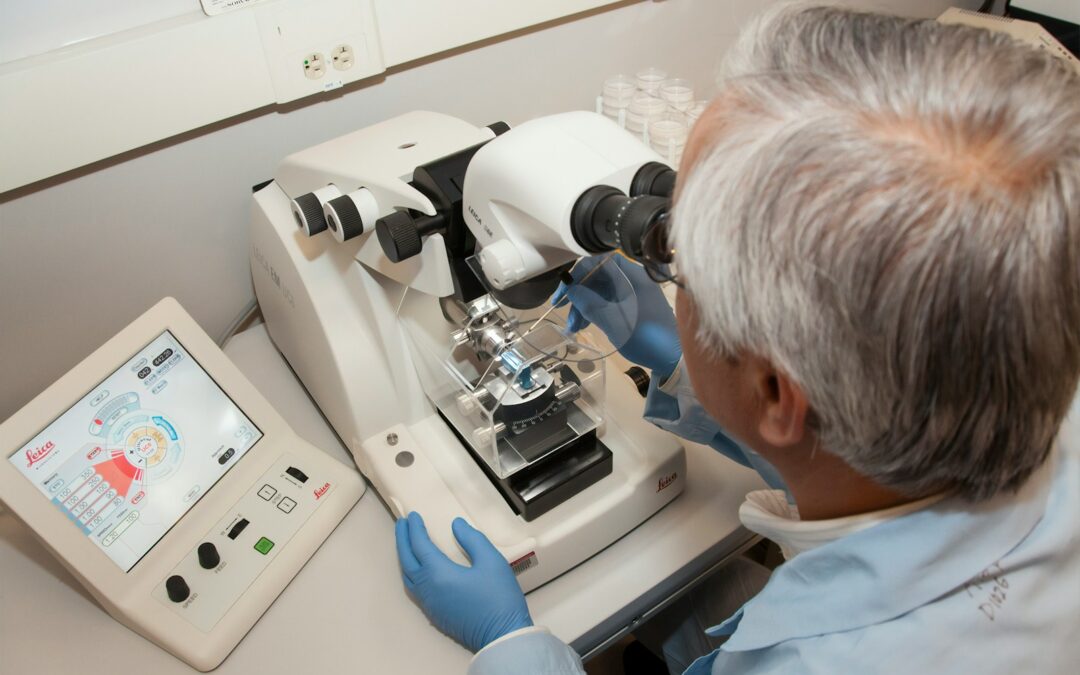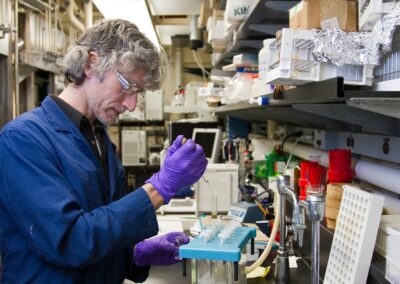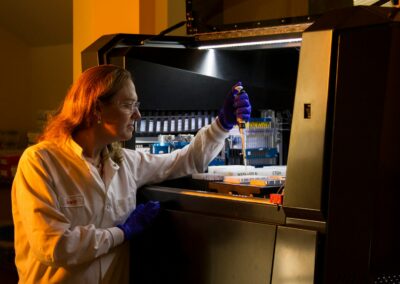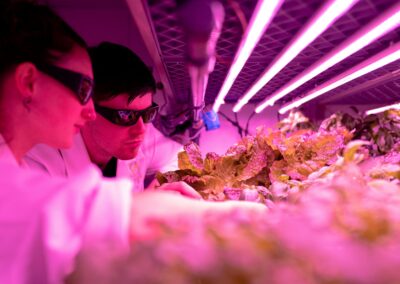Emerging Trends Shaping the Future of Genetic Engineering
The Evolution of Genetic Engineering
The future outlook for genetic engineering and synthetic biology is increasingly promising, driven by rapid advancements in technology and an expanding understanding of genetic mechanisms. Genetic engineering, which involves modifying an organism’s DNA to achieve desired traits, has been a cornerstone of biotechnology for decades. Recent innovations, however, are pushing the boundaries of what is possible. Techniques such as CRISPR-Cas9 have revolutionized the field by allowing precise edits to the genome, facilitating more accurate and efficient genetic modifications. These advancements are not only enhancing our ability to address genetic disorders but also paving the way for new applications in agriculture, industry, and medicine.
In the context of Saudi Arabia and the UAE, where significant investments are being made in biotechnology and innovation, the evolution of genetic engineering is a focal point. Both countries are actively pursuing research and development initiatives that leverage these technologies to address local and global challenges. For instance, genetic engineering is being explored to improve crop resilience and productivity, an area of particular relevance given the arid climates of these regions. Moreover, advancements in genetic engineering are expected to contribute to the development of new therapies and diagnostic tools, aligning with broader goals of enhancing healthcare and fostering technological leadership.
As the field continues to advance, the integration of genetic engineering with other emerging technologies, such as artificial intelligence and synthetic biology, will further enhance its potential. AI-driven tools are being developed to predict the outcomes of genetic modifications, optimize experimental designs, and accelerate the discovery of novel applications. This synergy between genetic engineering and AI is expected to drive significant breakthroughs and create new opportunities for innovation and development.
Synthetic Biology: Pioneering New Frontiers
Synthetic biology, an interdisciplinary field that combines biology with engineering principles, is poised to complement and expand the capabilities of genetic engineering. By designing and constructing new biological parts, devices, and systems, synthetic biology aims to create novel organisms and biological functions. This field holds the potential to revolutionize industries ranging from pharmaceuticals to environmental management. For example, synthetic biology can be used to engineer microorganisms that produce valuable compounds, such as biofuels or pharmaceuticals, more efficiently than traditional methods.
In Saudi Arabia and the UAE, synthetic biology is becoming increasingly relevant as part of broader biotechnology initiatives. Both countries are investing in research and development to explore the potential of synthetic biology for sustainable development and industrial applications. The development of synthetic organisms capable of addressing specific environmental challenges, such as pollution or resource scarcity, aligns with national goals of fostering innovation and achieving sustainability. Additionally, synthetic biology has the potential to enhance the production of high-value chemicals and materials, contributing to economic diversification and growth.
The future of synthetic biology will likely involve greater integration with genetic engineering, resulting in more sophisticated and tailored solutions. Advances in DNA synthesis, gene editing, and metabolic engineering will enable the creation of custom-designed biological systems with enhanced functionality and efficiency. This convergence of technologies is expected to drive significant progress in biotechnology, leading to novel applications and transformative impacts across various sectors.
Innovations and Their Impact on Biotechnology
The intersection of genetic engineering, synthetic biology, and other emerging technologies is set to drive the next wave of innovations in biotechnology. One of the most exciting developments is the application of these technologies to personalized medicine, where treatments are tailored to an individual’s genetic profile. Advances in genetic engineering and synthetic biology will enable the creation of customized therapies and diagnostic tools, improving treatment outcomes and patient experiences.
In Saudi Arabia and the UAE, the focus on biotechnology and innovation is creating a favorable environment for these advancements. Both countries are leveraging their investments in research and development to position themselves as leaders in the biotechnology sector. The integration of genetic engineering and synthetic biology with cutting-edge technologies such as artificial intelligence and blockchain will enhance their ability to drive innovation and achieve impactful results. For instance, blockchain technology can be used to ensure the integrity and traceability of genetic data, while AI can optimize the design and implementation of synthetic biology projects.
Looking ahead, the future of genetic engineering and synthetic biology will be shaped by ongoing research, technological advancements, and collaborative efforts across industries and borders. As these fields continue to evolve, they will offer new opportunities for addressing global challenges, enhancing human health, and advancing scientific knowledge. Embracing these innovations and fostering a collaborative approach will be key to unlocking the full potential of genetic engineering and synthetic biology.
#GeneticEngineering, #SyntheticBiology, #Biotechnology, #FutureOfGenetics, #InnovationInBiotech, #EmergingTechnologies, #PersonalizedMedicine, #BiotechAdvancements































